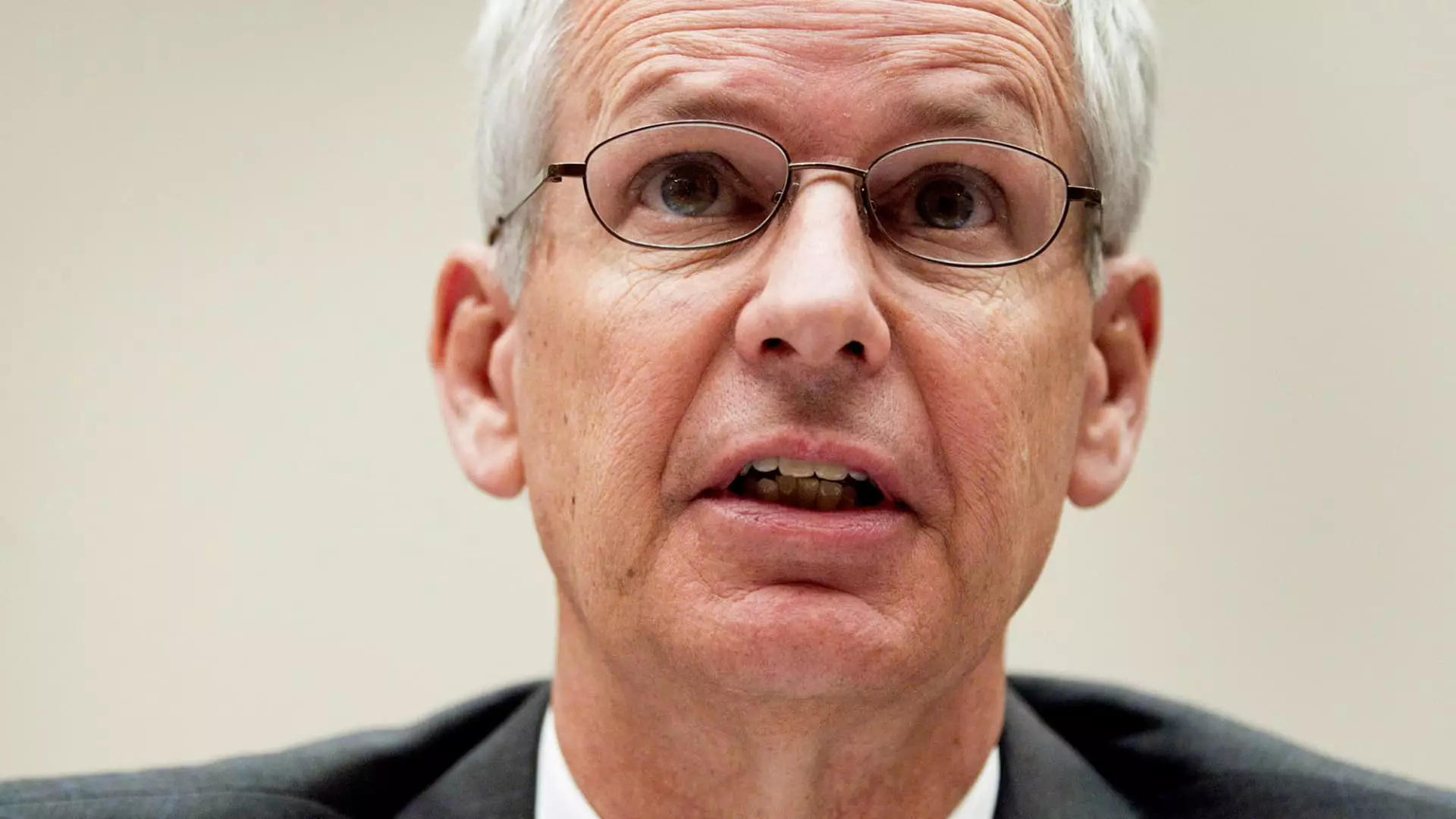The narrative arc of Dish Network has taken a turn akin to the infamous ending of the beloved sitcom “Seinfeld.” Once a vibrant player in the pay-TV landscape, Dish’s journey has recently culminated in a series of setbacks, culminating in a deal to sell its pay-TV segment to DirecTV for a mere dollar—a sum overshadowed by a daunting $9.75 billion in debt attached to the company. This transaction epitomizes the frustrations of industry observers and investors alike, reflecting a tale of ambition gone astray. Citing Charlie Ergen, the co-founder of Dish, one cannot help but draw parallels between the company’s strategic trajectory and the disjointed yet ultimately cohesive plots of a “Seinfeld” episode, one that has ended with an unsatisfying conclusion.
The Rise and Fall of Satellite TV
In its heyday, Dish Network was a formidable entity, providing entertainment to millions across the nation. However, the tides have turned sharply as shifting viewer preferences, favoring streaming services and internet-based providers, have ravaged its subscriber base. A staggering 63% decline in video subscribers between 2016 and the present encapsulates an industry grappling with irrelevance. EchoStar’s CEO, Hamid Akhavan, expressed the pressing reality during a recent CNBC interview, emphasizing that “times have changed” in the content-distribution industry—a trend that has seen a drastic decrease in traditional pay-TV consumption.
The ambitious attempts made by Dish to pivot towards becoming a wireless carrier highlight a struggle to adapt. Over the years, Dish sought to diversify its portfolio, investing in spectrum and even acquiring Boost Mobile in an effort to meld old and new revenue models. Yet, increasing competition from established telecommunications giants has rendered these efforts largely fruitless. The once-promising ambition of Dish’s leadership has devolved into a series of missteps that, much like a poorly written sitcom, failed to capture the imagination or loyalty of its audience.
Mergers and Missteps in the Market
The sales dynamics in recent years vividly illustrate the turbulent climate faced by Dish Network. When the prospect of merging with DirecTV arose in 2014, both companies commanded significant market capitalizations of $40 billion and $28 billion, respectively. Fast forward to today, and the landscape has dramatically transformed, with DirecTV having merged with AT&T for a whopping $49 billion in equity just a year later. In stark contrast, Dish’s valuation has plummeted, epitomizing an industry struggling to keep pace with a rapidly evolving market.
EchoStar’s strategic decision to offload Dish is indicative of desperate measures in an era of diminishing returns. The implications of a $2 billion debt payment looming on the horizon played heavily into the calculus. The narrative constructed by Ergen over the years, often illustrated through metaphoric gestures, now seems like a misguided attempt to juggle too many plots at once. Instead of focusing on a coherent direction, the management’s indecision and scattering of resources have led to further instability.
Ultimately, the culmination of Dish Network’s journey feels reminiscent of the disappointing “Seinfeld” finale—an unresolved build-up that fizzled into disinterest. Just as viewers were left unsatisfied with the conclusion of one of television’s most iconic shows, industry analysts and investors are grappling with the bittersweet end of a company that once boasted a thriving business model. The misalignment of ambitions, the failure to adapt, and the misguided belief in a revival ultimately make for a cautionary tale in the tech and media sectors.
As the dust settles on this debacle, it raises an indelible question for the industry at large: How do companies navigate a world that is changing so profoundly, when adherence to outdated models leads to an inevitability that feels as anticlimactic as a failed comedy finale? In this ever-evolving landscape, the need for a fresh approach and a reimagining of business strategies has never been more critical. Dish has faced its final curtain call in its current form, and the lessons it leaves behind serve as a stark reminder in the fickle world of media and entertainment.


Leave a Reply